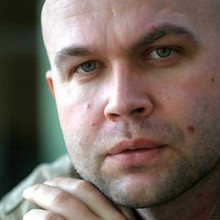Polish literature

Dariusz Suska
A poet, born in 1968 in Złotoryja, he graduated in physics from Wrocław University. He has published three volumes of poetry. He works at leading daily newspaper Gazeta Wyborcza and lives in Warsaw.
Suska's first collection betrays a youthful fascination with the poetry of Zbigniew Herbert – in purely formal terms, because in content what attracts attention is the intense presence of metaphysical and downright theological issues (criticised as ”making theory out of spiritual life”), and at the same time a total lack of humour, politics or sensuality. The poet is particularly fascinated by the idea of apocatastasis and the question of the salvation of animals, to which he devotes numerous poems, in subsequent collections too, where the main difference arises from the impression made on the author by reading the works of Jarosław Marek Rymkiewicz and from thorough assimilation of his thoughts on the subject of classicism. Suska starts to rhyme, at first timidly, then consistently. Instead of appeals to famous philosophers we find thoughts that arise organically from observation of the world, often replaced by his objectified version, one that does not avoid turpitude. This combination of a fascination with ugliness and decay, a tendency to be metaphysical and the need for perfection of form make Suska an heir to the Baudelairean tradition. Along with the change in his way of writing, a personal note has entered his poetry, especially memories of childhood and a plastic recreation of 1970s' Poland – not as the object of nostalgia or the subject of criticism, but rather as a backdrop for self-criticism (just like Saint Augustine, Suska never stops feeling guilty of all manner of evil, which he has at some time caused or promoted). The final volume is dominated by death, observed from many angles and in a wide variety of manifestations, which gives the book a gloomy, elegiac character, although its inference should be recognised as Christian and optimistic. Suska's poetry delights in paradoxes, asking difficult questions and, most interestingly, attempts to give reasoned, valid answers to them.
BIBLIOGRAPHY
- Rzeczy, które były światem, Kraków, Zebra 1992.
- DB 6160221, Kraków, Zebra 1998.
- Wszyscy nasi drodzy zakopani, Warszawa–Wołowiec, Czarne, Lampa 2000.
- Cała w piachu, Wołowiec: Czarne 2004.
- Czysta ziemia. 1998-2008, Wrocław: Biuro Literackie 2008
- Duchy dni, Wrocław: Biuro Literackie 2012